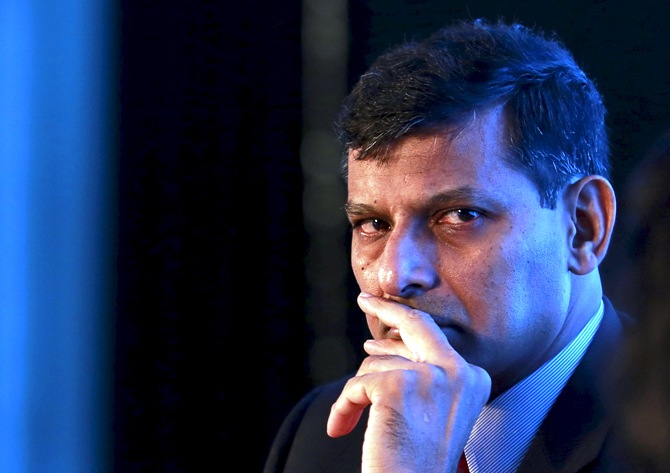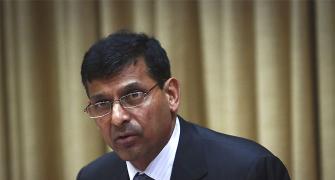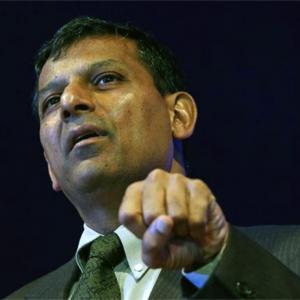Concerns over inflation, though, remain.
 The Reserve Bank of India (RBI) cut its policy interest rate to a 4-1/2 year low of 6.75 per cent on Tuesday, in a bigger-than-expected move that, with inflation running at record lows, could help an economy in danger of slowing down.
The Reserve Bank of India (RBI) cut its policy interest rate to a 4-1/2 year low of 6.75 per cent on Tuesday, in a bigger-than-expected move that, with inflation running at record lows, could help an economy in danger of slowing down.
A Reuters poll last week showed only one out of 51 economists had expected a 50 basis points cut in the repo rate, while 45 had expected a 25 bps cut, the same magnitude as previous three cuts this year.
"I don't think we have been excessively aggressive," RBI Governor Raghuram Rajan told a news conference, explaining that falling global commodity prices had helped the RBI "front-load" the easing.
"Clearly this was about, given the state of the economy, how can we move forward," he added, reflecting widespread concern that growth was losing momentum.
At the same time, the RBI, in a statement written by Rajan, announced a slew of measures intended to further open debt and currency markets, signalling confidence in an economy expected to fare better than emerging market peers once US interest rates are raised for the first time in nearly a decade.
The benchmark 10-year government bond yield dropped as much as 17 bps to 7.56 per cent, its lowest level since mid-July 2013, but share indexes edged lower, tracking global markets.
The RBI justified the bigger rate reduction, saying consumer inflation was likely be running at 5.8 per cent in January, below the 6 per cent target, thanks partly to the government's efforts to contain food prices.
Inflation dropped to a record low of 3.66 percent in August.
Analysts said the prospect of additional easing was unlikely for a while, with the focus now likely to shift to a government that has struggled to get its reform policies past parliament.
The bigger rate cut "highlights the central bank's concern over the underlying growth momentum, especially given the disappointing reform progress and leveraged banks, corporates," said Radhika Rao, an economist at DBS in Singapore.
Calls for lower rates began to grow louder after the economy grew by a slower-than-expected annualised rate of 7 per cent in the April-June quarter -- faster than China, but well below the government's target of 8 to 8.5 per cent for the year ending in March.
Reflecting the soft going, the RBI lowered its own growth forecast for the fiscal year to 7.4 percent from 7.6 percent previously.
ENCOURAGING FOREIGN INVESTORS in BONDS
Cutting interest rates during the monsoon season, running from mid-June through September, is unusual for the RBI as it has tended to be on the defensive against food price pressures after disappointing rains.
This is the first cut during that period since the repo rate was adopted as the policy rate in 2004.
This was also the biggest rate move taken by Rajan since he took the helm in September 2013. All his previous moves, up or down, had been by a magnitude of 25 bps.
The RBI said it would now target consumer inflation at around 5 percent by March 2017, while striving to keep real interest rates benchmarked to a 1-year Treasury bill rate of between 1.5 to 2 per cent.
Rajan also announced a slew of measures to develop markets, a key objective for the former chief economist of the International Monetary Fund.
The measures included increasing the current $30 billion limit for foreign investments in government bonds by $18.13 billion by March 2018 in stages, and allowing overseas funds to buy debt issued by Indian states.
"The steady relaxation for foreign investors in government securities is also a big positive for Indian debt market. I see a sustainable rally in bonds. The stance of RBI is leaning towards dovish side," Killol Pandya, head of fixed income at Peerless Funds Management in Mumbai, said.
Image: Raghuram Rajan. Photograph: Danish Siddiqui/Reuters










